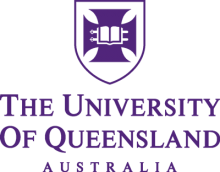The University of Queensland has become the second Australian higher education institution to agree terms with the controversial Ramsay Centre for Western Civilisation, which is expected to result in a new extended major being offered next year.
The memorandum of understanding with the philanthropic centre, reportedly worth A$50 million (£28 million), was signed in Sydney on 7 August.
Vice-chancellor Peter Høj said the deal would give Queensland “a level of philanthropic support rarely seen in the humanities in Australia”, bankrolling “a rigorous sequence of study focused on small-group discussion, a study-abroad programme and student-centred learning”.
“This level of investment in the humanities at UQ comes at a time when opportunities to maintain these foundational disciplines are diminishing,” Professor Høj said. “Talented future students will be able to pursue a liberal arts education that will be both challenging and rewarding, and will equip [them] with the collaborative and persuasive skills to bring about meaningful change.”
The programme would offer an extended major in Western civilisation via two pathways: a bachelor of advanced humanities (honours) and a dual degree combining an honours in law with a bachelor of humanities (Western civilisation).
Queensland said the Ramsay funding would cover 10 full-time equivalent academic staff, including a director, two new professional staff and 150 scholarships for high-achieving students.
Ramsay will fund sabbaticals for academics after they have taught for at least six semesters.
The agreement is the second for Ramsay, which reached terms with the University of Wollongong last year.
Unlike Wollongong, which avoided controversy by negotiating in secret, Queensland has undergone bruising consultations with its staff and students. The university’s board of studies for the humanities and social sciences faculty twice rejected the draft curricula.
Staff and student opposition to the Ramsay partnership partly centres around institutional autonomy. Professor Høj insisted that the agreement gave Queensland control over “all key governance arrangements, including course content, teaching standards, student admissions, selection of scholarship applicants, staff appointments and academic and intellectual freedom”.
The agreement entitles Ramsay to representation on staff selection panels but does not give it veto rights over recruitment or deployment. Appointments, teaching, quality assurance and dealings with students “will be undertaken in accordance with UQ’s usual procedures and policies and will be solely under UQ’s ambit and control”, the agreement says.
But staff representatives say the partnership threatens academic freedom, institutional autonomy and transparency and “raises serious concerns about educational diversity and equity and the quality of UQ curriculum”.
A petition from the Queensland branch of the National Tertiary Education Union says the proposed curriculum is “regressive and outdated” and “has the potential to privilege students who are already privileged”.
The Ramsay agreement follows claims that the Queensland-based Confucius Institute wields too much influence in the university.
Australian vice-chancellors were briefed about security issues, including the influence of Confucius Institutes, during a 7 August meeting with education minister Dan Tehan at Wollongong.
Register to continue
Why register?
- Registration is free and only takes a moment
- Once registered, you can read 3 articles a month
- Sign up for our newsletter
Subscribe
Or subscribe for unlimited access to:
- Unlimited access to news, views, insights & reviews
- Digital editions
- Digital access to THE’s university and college rankings analysis
Already registered or a current subscriber?










